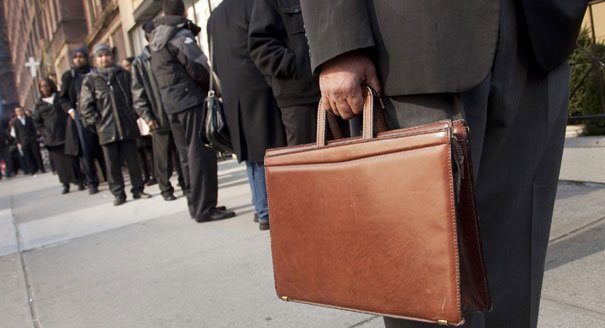[tribulant_slideshow gallery_id=”15″]
The unemployment topic is one of the most discussed topics by politicians and leaders around the globe. In the 2016 U.S. presidential election, unemployment was one of the major points with both candidates having very different approaches on how to lower the unemployment rate.
The International Labor Organization (ILO) is one of the leading resources in gathering information about employment and economic trends on a global scale. Every year, they publish a World Employment Social Outlook that analyzes past data and gives projections for future employment trends. The latest version was published in early 2016 and projected rising unemployment in 2016 and 2017.
The report shows the scary trend of rising unemployment that can be blamed on a world population that is growing faster than the economic growth can keep up with. Also, in the year of 2015, the world unemployment increased by more than one million to over 197 million. However, this number does not factor in less developed countries, who do not provide precise data about their employment rates.
In addition to these missing statistics, there have been major changes in the way the unemployment has been measured. Over the years many presidents in the United States have changed measurement criteria to make themselves look more successful as a president. This has impacted the unemployment rate in the U.S. since 1994 when President Clinton changed how the Bureau of Labor Statistics redefined the workforce. This major change is that at that time it excluded approximately four million people that were looking for a job for more than a year.
With these changes being made the current unemployment in the United States is at 4.7 percent, according to the Bureau of Labor Statistics. This is the lowest rate that the United States had in almost ten years and one of the lowest in history.
“Don’t believe these phony numbers. The number is probably 28, 29, as high as 35 [percent]. In fact, I even heard recently 42 percent,” President Donald J. Trump said at a speech in early 2016.
In Europe, the unemployment rate varies a lot between the central and northern European countries and the south. The average unemployment rate in the European Union is at 8.3 percent, according to statista.com. While many European countries like the UK, Hungary, Denmark, Germany, and Norway have unemployed rates below five percent, there are other countries that struggle from unemployment, especially for younger people. In fact, the unemployment rates in France, Portugal, Slovenia, Italy, Serbia, Croatia, and Spain are still over ten percent.
“The way Europe behaved in the crisis was nothing short of disastrous. Five years ago, the United States and Europe had approximately the same unemployment rate and level of public debt. But now, five years later, it’s a different story: Unemployment has exploded here in Europe, while it has declined in the United States. Our economic output remains below the 2007 level. It has declined by up to 10 percent in Spain and Italy, and by 25 percent in Greece,” said French economist Thomas Piketty in an interview with the Spiegel Magazine.
In Asia, the unemployment is low when compared to the western countries. Economic powerhouses, India and China, have employment rates below five percent, according to data collected from tradingeconomies.com. Also, countries like Japan, Singapore, and Vietnam have even lower unemployment rates at three or under three percent.
This significant difference can be explained by the social benefits that someone gets while being unemployed in most Asian countries. In China, for example, there is an employment insurance that was established by the government in 2011 and requires employers to pay an insurance for certain benefits. This step was an approach to model after western standards regarding employee benefits. However, the unemployment pay is very small and does not provide people with the social aid that people receive in western nations.
Especially in many European countries offer good benefits for unemployed people that includes free housing and a monthly paycheck. In Germany, for example, an unemployed person receives more than someone who is working for minimum wage after tax deductions.
Across the world, the topic of unemployment will continue to be of extreme significance for every country. Having people employed is not only important for the country’s economy, but also for the people. There is the desire to provide for the family and live a good life. Countries that have previously have been able to offer jobs and job security have excelled, like The United States. The future will show how this topic will change through global economic markets and its effects on unemployment around the world.





